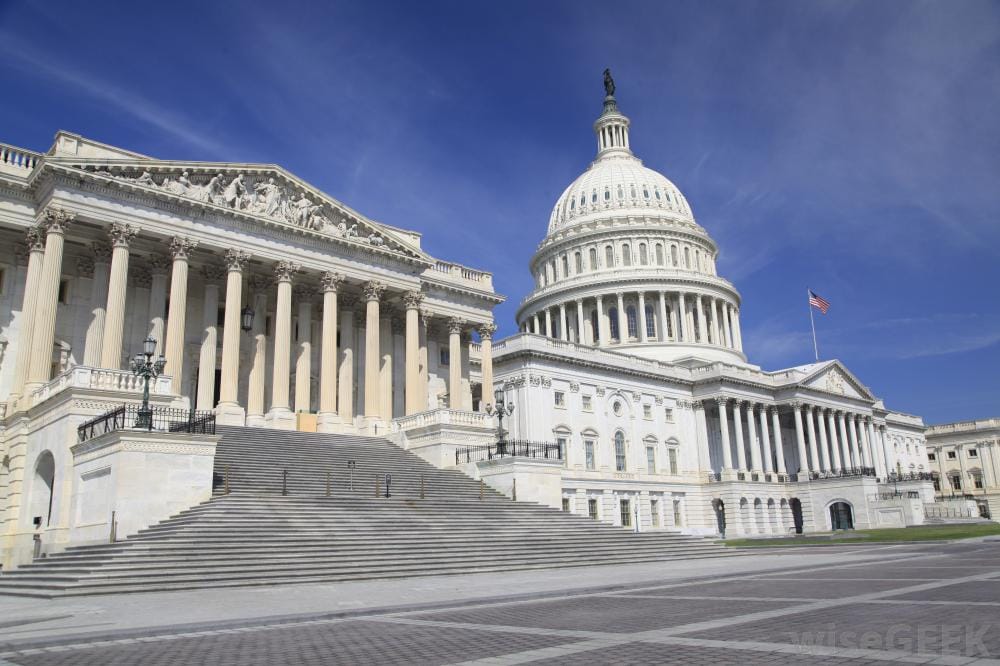In January, the U.S. House and Senate returned from their weeklong holiday recess. The two Chambers finished negotiations and passed a final version of tax reform legislation on Friday, December 22, just before departing for their recess. Lawmakers also temporarily extended the deadline for government funding until Saturday, January 20, 2018. Currently, Lawmakers are in the process of resolving disputes over spending for the rest of fiscal 2018. The Senate balance of power was also adjusted as two new Members joined the Senate, including Minnesota Senator, Tina Smith and Alabama Senator, Doug Jones.
Justice Department Issues Memo for Marijuana Enforcement
In January, the Department of Justice issued a memo on federal marijuana enforcement policy announcing a return to the rule of law and the recession of previous guidance document. In 1970, Congress passed the Controlled Substances Act, and has prohibited the cultivation, distribution and possession of marijuana. In the memo, Attorney General Jeff Sessions directs all U.S. Attorneys to enforce the laws enacted by Congress when pursuing prosecutions related to marijuana activities. The memo also directs U.S. Attorney’s “to use previous established prosecutorial principals that provide them all the necessary tools to disrupt criminal organizations, tackle the growing drug crisis, and thwart violent crime across the country.”
Law Enforcement Mental Health and Wellness Act passed the House and Senate
The House and Senate passed the Law Enforcement Mental Health and Wellness Act of 2017. The Senate version was passed in May and the House version was passed in December. The bipartisan bill aims to direct the Department of Justice along with the Department of Defense and the Department of Veterans Affairs, to develop resources to equip local law enforcement agencies to address mental health challenges faced by officers. The bill also makes grants available to initiate peer mentoring pilot programs, develop training for mental health providers specific to law enforcement mental health needs, and support law enforcement officers by studying the effectiveness of crisis hotlines and annual mental health checks. The bill is sponsored by Representatives Susan Brooks (R-IN) and Valdez Demings (D-FL) in the House and by Senators Joe Donnelly (D-IN) and Todd Young (R-IN) in the Senate.
Attorney General Announces Director of Opioid Enforcement
Attorney General Jeff Session announced the Department of Justice (DOJ) has created a new senior level position, the Director of Opioid Enforcement and Prevention Efforts. The Director will be responsible for assisting the Attorney General, the Deputy Attorney General and the Department of Justice in components in formulating and implementing DOJ initiatives, polices, grants and programs related to opioids as well as coordinating these efforts with law enforcement. The Director position has yet to be filled, and we will provide updates when announced.
House Passes Concealed Carry Legislation
In December, the House passed the Concealed Carry Reciprocity Act by 231-198 votes. The legislation would permit concealed carry license holders to conceal a handgun in other states. This is the first time Congress has taken action on a gun bill since President Trump was sworn into office. Also included in the House GOP gun bill is a proposal to improve the National Instant Criminal Background Check System which is managed by the FBI. The bill will also penalize federal agencies who fail to properly report relevant records and incentivizes states to improve overall reporting. In addition, the bill directs more federal funding to accurate reporting of domestic voice records.
Regulatory Process on Bump Stocks
The Department of Justice (DOJ) and the Bureau of Alcohol, Tobacco and Firearms and Explosives (ATF) announced that it has begun the process of promulgating a federal regulation interpreting the definition of “machine gun” under federal law and if certain bump stock devices fall within that definition. ATF has taken the initial step in this regulatory process by drafting an Advanced Notice of Proposed Rulemaking (ANPRM) and submitting it to the Office of Management and Budget. The ANPRM will provide the public with the opportunity to submit formal comments to ATF about bump stocks to inform ATF’s decision. The National Firearms Act of 1934 and Gun Control Act of 1968 regulate the possession and transfer of machine guns.
Selected Michigan Delegation Updates
Congressman Dan Kildee (D-MI-5) met with local law enforcement in Flint to discuss the issues that affect officers and their departments. The opioid epidemic was a main topic of conversation. As a member of the Bipartisan Heroin Task Force, Congressman Kildee is committed to working with local law enforcement to combat this unfortunate crisis. During the meeting, the police officers also discussed concerns over pension cuts, in addition to Congressman Kildee’s recent legislation to promote safety and help reduce violent crime in communities across Michigan.
Congressman Mike Bishop (R-MI-8) led a moment of silence on National Law Enforcement Appreciation Day, on the House floor, honoring Oakland County Sheriff’s Deputy Eric Overall and Deputy David Hack on their legacies of service.



One response to “January 2018 POAM Washington Report”
Posted by Amanda Volz
All very GOOD except having such strict policies on Marijuana. In my opinion.
Posted on January 12, 2018 at 9:02 PM